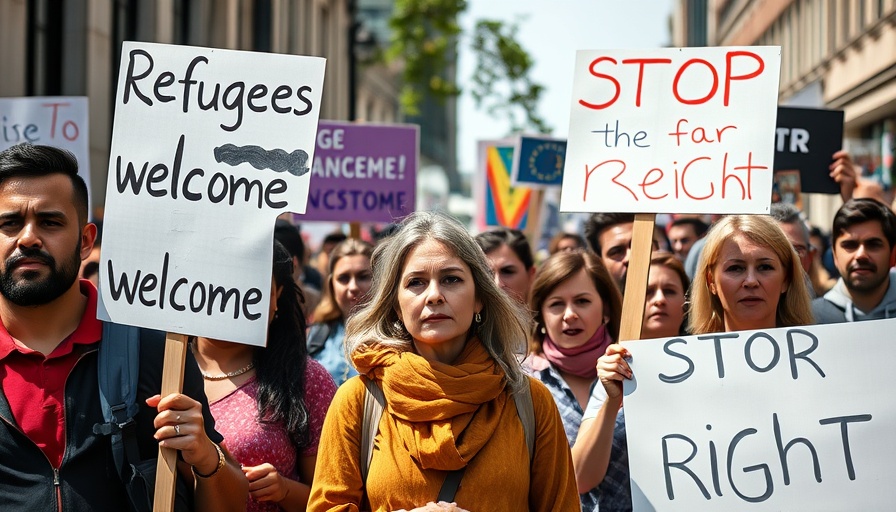
A Clash of Perspectives on Immigration in the UK
The ongoing debate around immigration has erupted into public protests across the United Kingdom, revealing a complex tapestry of opinions, fears, and political agendas. Over the weekend, demonstrations turned violent, contrasting sharply with counter-protests advocating for anti-racism. These events underscore the polarized climate surrounding the government's new approach to address unauthorized immigration, specifically its commitment to reform the appeals process for asylum seekers.
In 'UK government to overhaul migrant appeals system to help reduce backlog', the discussion dives into the complex dynamics of UK immigration reforms and public opinion, prompting us to analyze its impact further.
Government's Plan to Tackle Asylum Backlog
In response to the criticisms and public outcry regarding the current migration situation, the UK government announced its plan to establish an independent panel aimed at expediting appeals from asylum seekers. This initiative, designed to address the staggering backlog of over 51,000 unresolved cases, is not merely a bureaucratic update; it represents a pivotal shift in the nation's immigration policy aimed at more effective management and quicker resolution of claims.
Public Pressure and Financial Burden
The financial implications of housing asylum seekers in hotels have sparked outrage, with estimates suggesting that this practice has ballooned costs into the billions of pounds annually. As polling indicates immigration as a primary concern for voters, the Labour government faces immense pressure to follow through with its promise to phase out hotel accommodations for migrants, a promise that intertwines political accountability with fiscal responsibility.
Economic Implications of New Policies
Beyond the ethical considerations surrounding the treatment of asylum seekers, the proposed changes have substantial economic ramifications. Introducing an independent appeals panel could not only reduce occupancy costs associated with hotels but also potentially allow the government to redirect funds toward essential services and better management of immigration as a whole.
Essential Context: The Broader European Landscape
The UK’s immigration challenges occur within a broader European context where countries are grappling with surges in migration, pushing many governments to rethink their policies and strategies. Comparatively, nations such as Italy and Germany also navigate public dissent while striving to balance humanitarian obligations with national security concerns.
Counterarguments: Ethical Vulnerabilities of Reform
Opponents of the government's approach raise significant ethical concerns regarding the potential for expedited processes to undermine the rights of asylum seekers. Critics argue that while efficiency may be prioritized, detailed evaluations of claims could suffer, compromising the integrity of the asylum system. Finding a balance between quicker outcomes and humane treatment will be crucial in the days ahead, as advocacy groups watch closely.
Future Trends: Anticipating Migration Patterns
As nations worldwide adjust their immigration approaches, experts predict a complex landscape shaped by ongoing geopolitical conflicts, climate change, and economic disparities. Understanding these trends is pivotal for the UK as it seeks not only to implement effective legislation but also to remain aligned with global best practices in handling migration.
Historical Context: Lessons from the Past
Historically, the UK has experienced various waves of migration that have informed its current policies. From post-war migration to more recent humanitarian crises, past government decisions continue to shape the public response and policy frameworks related to immigration today. Learning from historical missteps may guide more compassionate, effective actions moving forward.
The discussion sparked by the video titled UK government to overhaul migrant appeals system to help reduce backlog illustrates crucial points regarding the intersection of public sentiment and government policy. As the scenario continues to evolve, it becomes imperative for policymakers to integrate diverse perspectives while addressing both the economic and humanitarian dimensions of immigration.
As a professional engaged with current events, understanding these dynamics can inform your own perspectives on immigration and public policy reforms. Get involved in community discussions, advocate for humane policies, and ensure that your voice counts in shaping the immigration debate.
 Add Row
Add Row  Add
Add 




Write A Comment